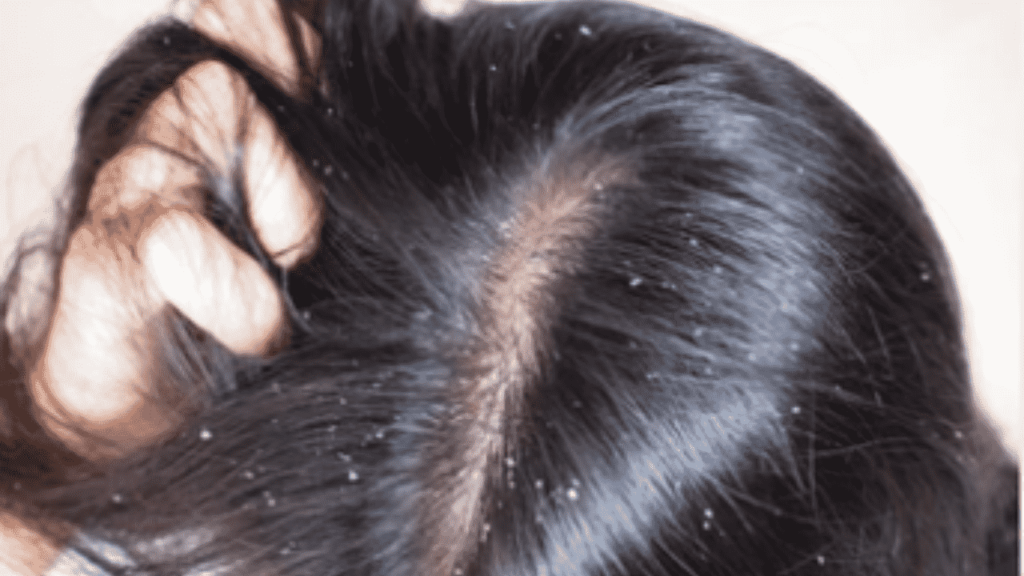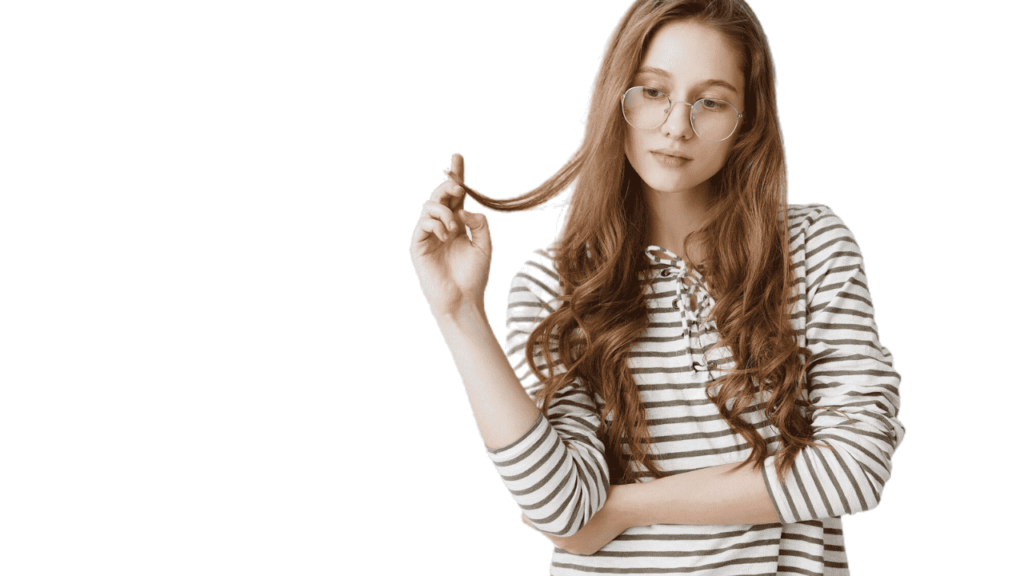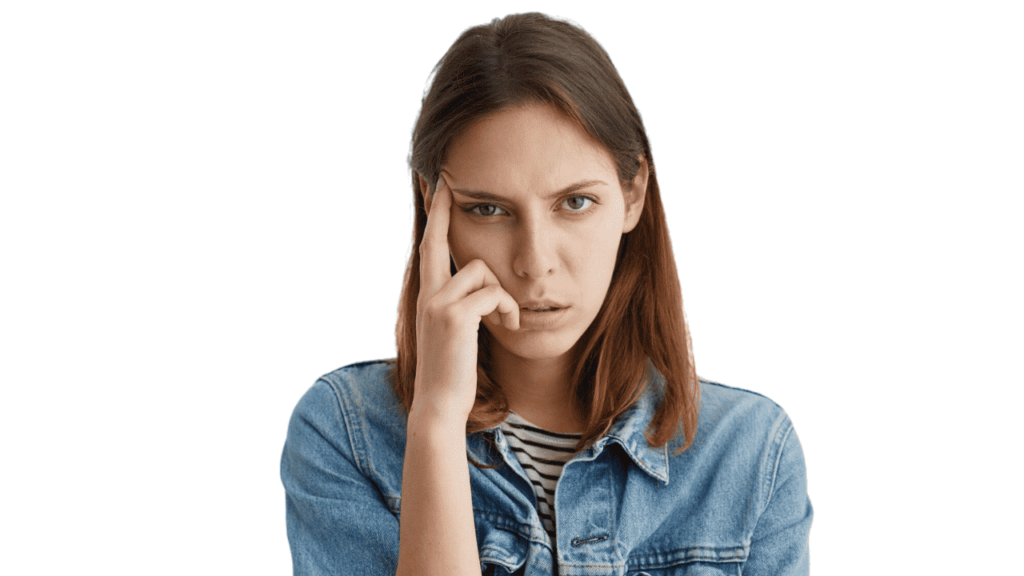Many people wonder if hair growth causes an itchy scalp. It’s a popular belief, but it’s mostly a myth. The truth is, an itchy scalp often signals conditions that can impede healthy hair growth, not support it. Experiencing a slight sensation of itching when hair is growing is normal, but it’s not always a sign of new hair. The notion of linking itchiness to growth is unfamiliar to some, yet it’s a prevailing thought. Understanding this can help in managing scalp conditions more effectively.
Does hair itch when it starts growing?

Eager to see your hair growing? Many believe scalp itching is a sign of hair growth, but that’s often a myth. Unfortunately, in many cases, an itchy scalp is linked to hair loss or other problems. The NHS notes dozens of potential causes for this sensation.
Why do hair loss treatments make your scalp itch?
Hair loss treatments like Minoxidil spray can irritate the scalp and make it itchy due to ingredients like Propylene glycol, a known irritant in topical solutions. Switching to a foam formula can reduce itchiness. In rare cases, allergic reactions may manifest as hives, swelling, or a rash. Always do a patch test by applying a small amount of the treatment behind your ear to see if symptoms develop.
Does an itchy scalp prevent hair growth?
An itchy scalp doesn’t usually prevent hair growth, but it can be a sign of an underlying condition such as ringworm (tinea capitis), seborrheic dermatitis, or lichen planopilaris. Hormonal changes during menopause or pregnancy can also contribute. Excessive scratching may damage follicles, causing temporary shedding or hair loss.
Is new hair growth prickly?
New hair growth on your scalp isn’t usually prickly because terminal hair is fine and soft. Prickly hair is often associated with freshly shaved regrowth on other areas of the body. Naturally coarse hair may cause some prickliness.
What to do if your hair isn’t growing
If your hair has stopped growing, check with a trichologist. An underlying condition might have disrupted your growth cycle, or you could have a hair loss condition causing it to fall out. The Wimpole Clinic’s trichology team can uncover causes and help you find the best treatment options.
The Itchy Scalp-Hair Growth Connection

The connection between an itchy scalp and hair growth has no substantial evidence. New hair growth is influenced by factors like genetics and hormones, not by how much your scalp itches. Unaddressed discomfort from conditions like folliculitis or tinea capitis can lead to hair loss. The importance of maintaining scalp health is clear, as allergic reactions and scratching can cause damage. Disorders like ringworm and certain types of alopecia result in itchiness and hair loss.
Common Misconceptions
A common misconception is that scratching an itchy scalp promotes hair growth. In reality, repeated and intense scratching can damage the skin and hair follicles, potentially leading to temporary hair loss instead.
Causes of Itchy Scalp
You Aren’t Washing Your Hair Correctly
Improper hair-washing routines can contribute to scalp irritation. Overwashing can disrupt the skin’s natural barrier, inducing oil production. Underwashing can trap sweat, dirt, and dead skin cells, promoting microbial growth. Thorough cleansing with adequate shampoo and proper rinsing is vital. Ensure your scalp is dry to avoid fungal and bacterial growth under head coverings at night. This helps in managing an itchy scalp.
You Have Ingrown Hairs
You have ingrown hairs if your itchy scalp has prominent reddish bumps. Ingrown hairs develop when hair curls back outwards and grows beneath the skin. This causes discomfort as the body sees it as a foreign invader. The immune system’s reaction leads to symptoms like pain, swelling, and redness, which accompanies intense itchiness. Proper oiling of wavy hair can help, as it heals the embedded hairs and prevents further issues.
You Have Been Experiencing Hair Loss
If you have been experiencing hair loss, it can lead to a persistently itchy scalp. Excessive scratching and underlying conditions may weaken follicles, causing nerve damage beneath the surface, which worsens irritation, itchiness, and the distressing cycle of flaking skin.
Effective management of an itchy scalp hinges on identifying the root cause. Various factors like skin conditions such as dandruff, eczema, seborrheic issues, scabies, folliculitis, prurigo, and stress or poor nutrition can trigger itchiness and possibly lead to hair loss. Addressing the underlying issue is important.
Skin Conditions
Skin conditions like dandruff, eczema, and psoriasis can make the scalp itchy. Persistent scratching can weaken hair and potentially cause hair loss. Inflamed patches and dry, scaly areas may also affect the eyebrows, beard, and mustache, and spread to the shoulders. This presents a risk of damage to the follicles, prolonged irritation, and intense infections, resulting in severe cases in some instances.
Lifestyle Factors Which Contribute To An Itchy Scalp
Stress and Scalp Health

Stress is a significant contributor to an itchy scalp. High levels of stress can increase skin sensitivity, leading to scalp itchiness. Managing stress through relaxation techniques, exercise, and mindfulness practices can help improve overall health and reduce itchiness.
Inadequate Nutrition and Scalp Health
Inadequate nutrition can lead to an itchy scalp. A deficiency in essential nutrients can result in skin issues like dryness, hair loss, and dandruff, which contribute to scalp itchiness. Ensuring a balanced diet rich in vitamins, minerals, and fatty acids can promote healthy skin and hair, reducing the likelihood of itchiness.
Signs of New Hair Growth
Identifying signs of new hair growth is an exciting milestone. While an itchy scalp isn’t always indicative of new growth, key indicators to watch include subtle changes in scalp visibility, the emergence of baby hair, and improved hair health. This shows insight into the progress of your regrowth journey and appearance.
Decreased Visibility of Scalp
As hair grows longer, it provides greater coverage to the scalp, reducing visibility of the skin underneath. This decrease in scalp visibility indicates that existing strands are elongating and contributing to overall growth. To maintain a healthy scalp, learn how to get rid of sebum on scalp effectively.
Baby Hair
Baby hair is a significant indication of ongoing growth. These delicate, fine strands sprout from the scalp as new follicles develop. Typically short, they have a soft, silky texture and are often observed around the brow and temples. Their subtle appearance helps distinguish them from damaged or split ends.
Managing Itchy Scalp for Optimal Hair Growth
Managing itchy scalp can improve hair growth and boost confidence. Effective medical treatments, including prescription medications and topical therapies, are available to address concerns and promote healthier growth. These solutions can combat itchiness and alleviate discomfort.
Medical Treatments
Medical treatments for an itchy scalp and hair loss include prescription medications like Minoxidil and Finasteride. These enhance blood circulation to hair follicles and stimulate growth. Topical therapies and antihistamines can alleviate itching and reduce irritation from fungal populations. Additionally, knowing how to clean hair brushes with vinegar can help maintain a healthy scalp.
Natural Remedies
Natural remedies are a viable alternative for managing an itchy scalp and encouraging hair growth. Essential oils can stimulate blood circulation, promote hair growth, and soothe inflammation. However, they only cover short-term solutions, so we recommend consulting a specialist for underlying medical conditions.
HOW TO STOP AN ITCHY SCALP
Battling an itchy scalp can be frustrating and uncomfortable. Immediate relief may involve identifying various causes like daily habits or underlying conditions. Addressing root causes is essential for lasting solutions to soothe and promote a healthier scalp.
Use An Anti-Dandruff Shampoo
Use an anti-dandruff shampoo as a primary step to alleviate an itchy scalp. These shampoos, especially those infused with medicinal properties, are formulated to combat dandruff and provide significant relief from itching.
Exfoliate Your Scalp
Exfoliate your scalp regularly for healthy, radiant hair. Removing dead skin cells and oil build-up improves scalp health. Use Scalp Peeling Gel with Hydrolyzed Yeast Protein to prevent dandruff. Ancient remedies like Centella Asiatica and Calendula help soothe and moisturize. Organic Licorice Extract and comprehensive care ensure a key ingredient for your routine.
Switch Up Your Diet
Balanced, healthy eating can help maintain a scalp free from dandruff. Foods rich in omega fatty acids, like fish and avocados, reduce inflammation. Avoid excessive sugar and dairy to keep sebum levels in check. Incorporating leafy vegetables, fruits, and proteins boosts overall immune health. Remember, hydration is paramount to avoid an itchy scalp.
Change Your Hair Care Routine
To soothe an itchy scalp, use post-wash conditioners that provide much-needed moisture. Apply scalp masks with oils for deep moisturisation. Two Herbs Collagen Mask with Hydrolyzed Royal Jelly Protein and Crambe Abyssinica Seed Oil mirrors skin’s natural oils, ensuring optimal hydration. For a well-hydrated scalp, avoid the temptation of a hot shower; use cool water for the final rinse to seal moisture and enhance blood circulation, keeping itching at bay.
Conclusion
Understanding the relationship between hair growth and an itchy scalp is crucial. While it’s often believed that itchiness signals new hair growth, it usually indicates underlying scalp issues. Addressing these conditions through proper care and targeted treatments can help maintain scalp health and support hair growth. Whether it’s changing your diet, adjusting your hair care routine, or seeking medical advice, taking proactive steps can alleviate discomfort and promote healthier, more vibrant hair.
FAQ’s
Why does my hair itch when it grows?
Itchiness can result from new hair growth. This sensation occurs because many follicles become active simultaneously. Check if the itchiness starts when you see dark spots, baby hair, or peach fuzz. This may be a sign of growing out thin hair.
How do you know if your hair is growing?
Notice texture changes and increased volume in your hair. Darkening follicles at the hairline can indicate growth. An itchy scalp with shiny, strong strands and reduced shedding rate also suggests new hair growth.
Can hair growth cause itching down there?
Pubic hair is thicker and coarse compared to other parts of the body. It can become noticeably itchier when it begins to grow back.
Does itchy scalp mean hair growth or hair loss?
Although conditions like itching and hair loss can occur independently, they might link due to fungal infections, allergic reactions to products, or inflamed hair follicles. These can cause scalp itch, and damage leading to hair loss.

